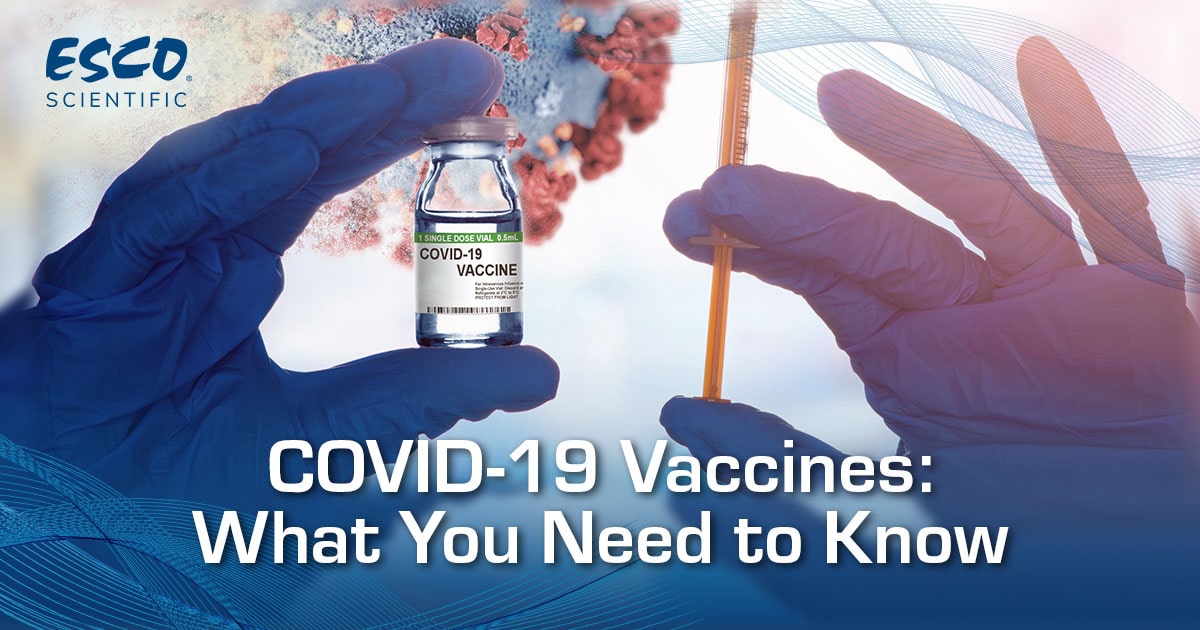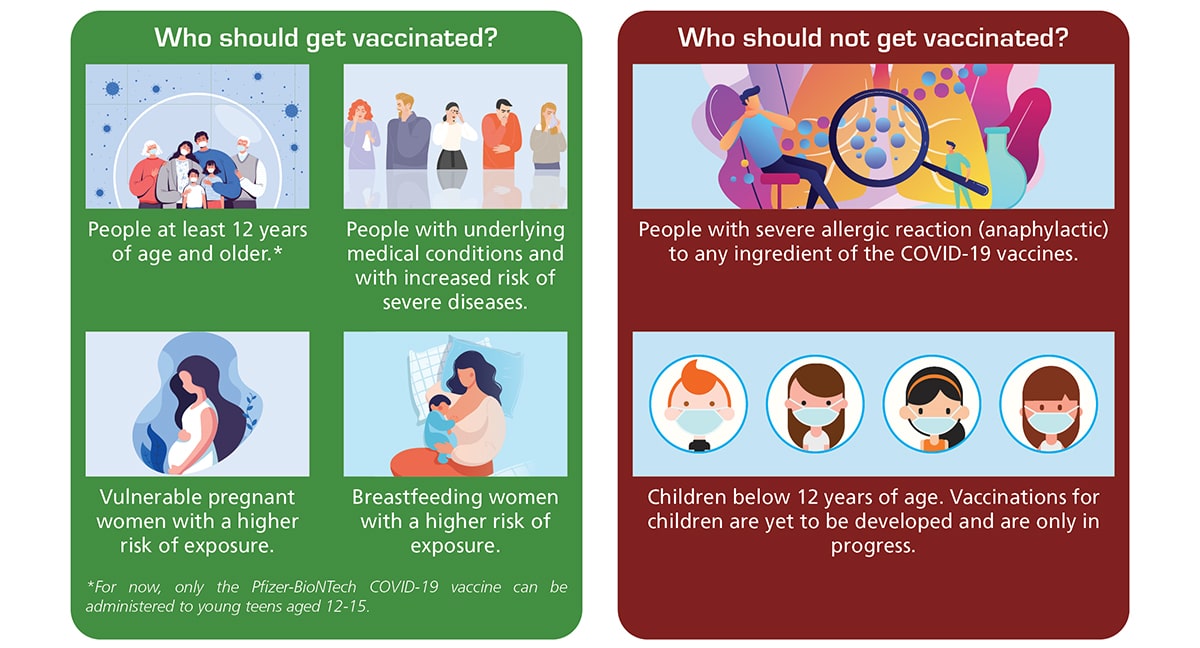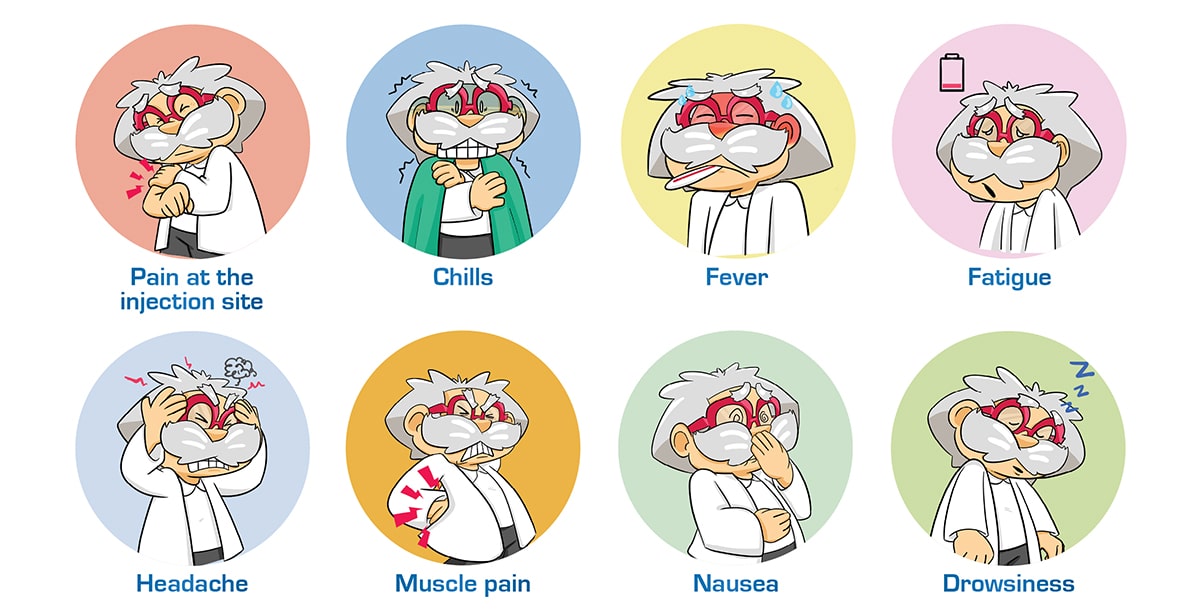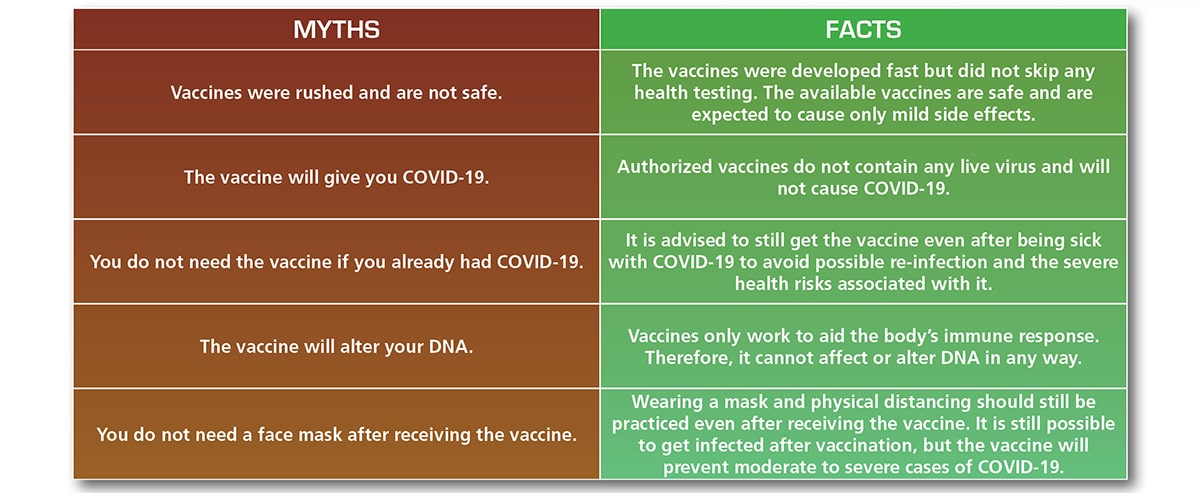COVID-19 Vaccines: What You Need to Know

COVID-19 vaccines are generally concurred to be the most effective in sustainably controlling the pandemic. It is after all proven that while countermeasures such as social distancing, universal face covering, and frequent handwashing are effective, it is not completely reliable and does not often work if disregarded. For that reason, the best way to avoid being infected by the virus is to be vaccinated. Since effective COVID-19 vaccines have been developed and are being allocated globally, it is important that everyone understands the advantages of the vaccines and their potential mild side effects. Inadequate knowledge and misinformation will lead to unnecessary fear causing more inconvenience. Vaccines are scientifically proven to provide more benefits than drawbacks.
How safe are the COVID-19 vaccines?
COVID-19 vaccines are proven to have shown a high level of efficacy on to the widespread controlled trials on people of different ages, ethnicities, and medical conditions. The vaccines are further proven to be safe and efficient as they met the U.S. Food and Drug Administration’s (FDA) strict scientific qualifications to enable emergency use authorization (EUA). European Medicines Agency (EMA) and Health Sciences Authority (HSA) have also authorized the emergency use of COVID-19 vaccines that have passed the criteria for efficacy and safety.

What are the benefits?
The COVID-19 vaccines provide disease protection by eliciting an immune response to the SARS-CoV-2. Developing immunity through vaccination reduces the risk of contracting the illness and its repercussions. If you are exposed to the virus, this immunity will help you fight it. According to studies, vaccinated people who become infected have mild to moderate cases of COVID-19 compared to those who are not vaccinated. As a result, once fully vaccinated, your risk of hospitalization and death due to COVID-19 is nearly eliminated.
Getting vaccinated can also protect the people around you as you are less likely to infect others. This is especially important to protect people who are at a higher risk of severe illness from COVID-19, such as healthcare providers, older or elderly adults, and people with underlying medical conditions. A new study has also shown expectant mothers who receive the COVID-19 vaccine develop antibodies to the virus, which they pass on to their unborn baby via the placenta.
It was also discovered that mothers pass antibodies to their newborns via breast milk. This suggests that the newborns have some immunity to the virus, which is especially important given that young children are unable to receive the vaccine.
Lastly, vaccination is the final step in battling the pandemic. To slow the spread of the virus, public health measures such as wearing a mask, social distancing, and handwashing must still be observed. We should maintain these precautions until enough people, particularly the most vulnerable members of our community, have been immunized.
What are the possible side effects?
Experiencing mild-to-moderate side effects after vaccination is a common reaction of the body. These side effects can range from muscle aches to minor fevers, which are expected and would usually go away after a few days. It indicates the production of antibodies, which are the first line of defense against infection. In other words, mild side effects are considered a good thing because they show that the vaccine is working and the immune system of the body is reacting to it.

Disclaimer: Side effects may vary with the type of COVID-19 vaccine.
COVID-19 vaccines could cause uncommon side effects such as severe allergic reactions. Although these situations are rare, it is important to observe and monitor the first 15 to 30 minutes after the vaccine was administered. There has also been a rare occurrence of blood clots after vaccination. The European Medicines Agency (EMA) estimated that around 5 out of 1 million people are at risk of experiencing a blood clot after vaccination. This has made many people concerned about whether they would receive the vaccine or not. According to the early findings from the University of Oxford, there is a greater risk of cerebral blood clots from COVID-19 than from post-vaccination. Clearly, the benefits outweigh the risk. With the vaccines only recently being administered, there has not been enough time to observe their long-term effect. If any unexpected reactions occur after vaccination, they should be reported to the doctor or any medical expert.
Myth busters about COVID-19 vaccine
With the ongoing distribution and administration of COVID-19 vaccines, there is a lot of misinformation circulating regarding their safety. It is important to counter-check the accuracy of any information to prevent the spread of these misconceptions. Here are some of the truths about popular COVID-19 vaccine myths.


References:
[1] CDC. May 2021. COVID-19 Vaccine Information for Specific Groups. https://www.cdc.gov/coronavirus/2019-ncov/vaccines/recommendations/specific-groups.html
[2] CDC. March 2021. Possible Side Effects After Getting a COVID-19 Vaccine. https://www.cdc.gov/coronavirus/2019-ncov/vaccines/expect/after.html
[3] CDC. April 2021. Safety of COVID-19 Vaccines. https://www.cdc.gov/coronavirus/2019-ncov/vaccines/safety/safety-of-vaccines.html
[4] CDC. April 2021. Myths and Facts About COVID-19 Vaccines. https://www.cdc.gov/coronavirus/2019-ncov/vaccines/facts.html
[5] COVID-19 Vaccine: Myth Versus Fact. April 2021. https://www.hopkinsmedicine.org/health/conditions-and-diseases/coronavirus/covid-19-vaccines-myth-versus-fact
[6] Koirala, A. Jin Joo, Y. et.al. June 2021 Vaccines for COVID-19: The current state of play. https://www.researchgate.net/publication/342297761_Vaccines_for_COVID-19_The_current_state_of_play
[7] Mayo Clinic. May 2021. COVID-19 vaccines: Get the facts. https://www.mayoclinic.org/diseases-conditions/coronavirus/in-depth/coronavirus-vaccine/art-20484859
[8] MU Healthcare. What are the Benefits of Getting the COVID-19 Vaccine. https://www.muhealth.org/our-stories/what-are-benefits-getting-covid-19-vaccine
[9] Torjesen, I. April 2021. Covid-19: Risk of cerebral blood clots from disease is 10 times that from vaccination, study finds. BMJ. https://doi.org/10.1136/bmj.n1005
[10] U.S. Food and Drug Administration. Coronavirus (COVID-19) Update: FDA Authorizes Pfizer-BioNTech COVID-19 Vaccine for Emergency Use in Adolescents in Another Important Action in Fight Against Pandemic. https://www.fda.gov/news-events/press-announcements/coronavirus-covid-19-update-fda-authorizes-pfizer-biontech-covid-19-vaccine-emergency-use
[11] WHO. March 2021. Side Effects of COVID-19 Vaccines. https://www.who.int/news-room/feature-stories/detail/side-effects-of-covid-19-vaccines
[12] WHO. March 2021. Safety of COVID-19 Vaccines. https://www.who.int/news-room/feature-stories/detail/safety-of-covid-19-vaccines
[13] WHO. October 2020. Coronavirus disease (COVID-19): Vaccines. https://www.who.int/news-room/q-a-detail/coronavirus-disease-(covid-19)-vaccines